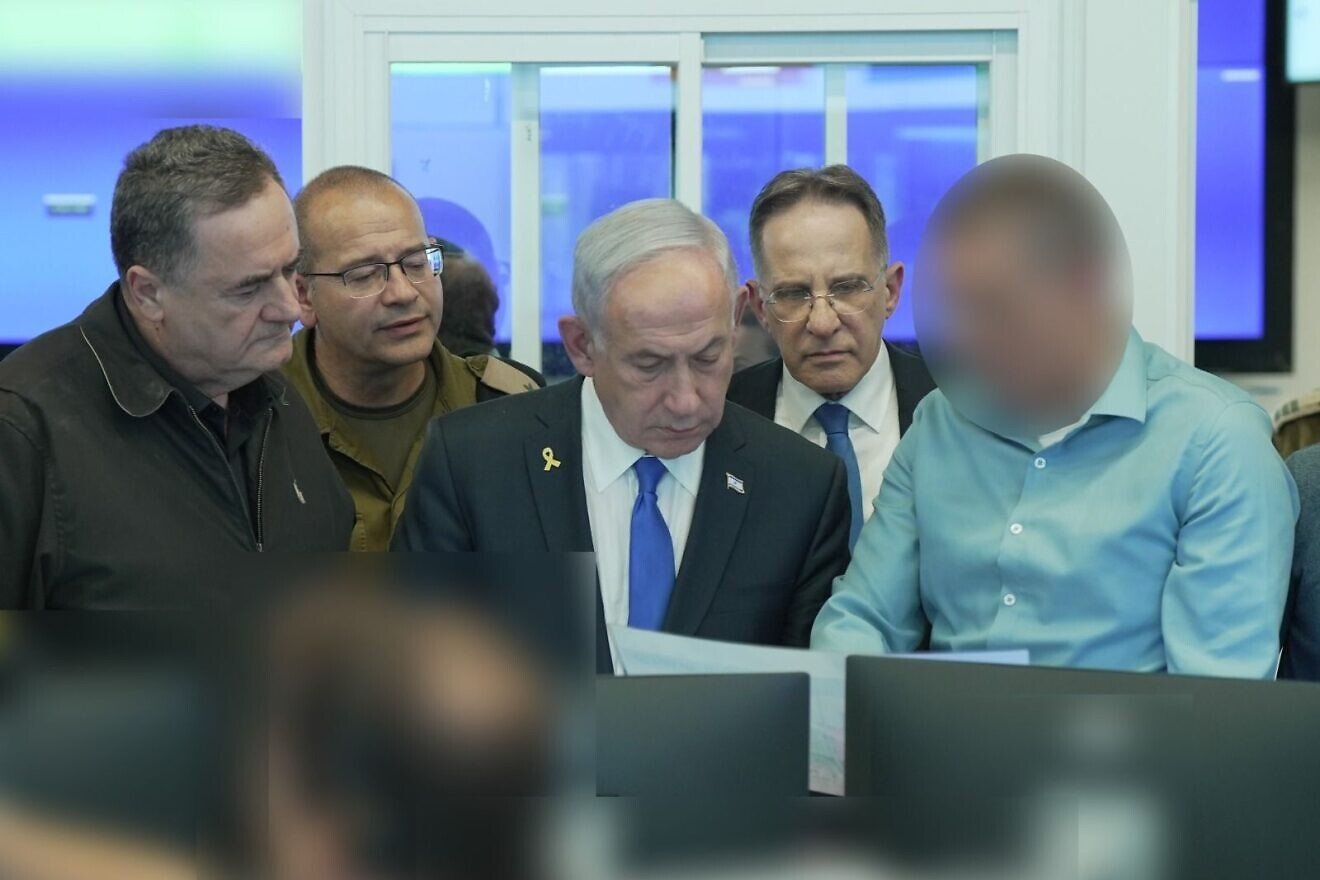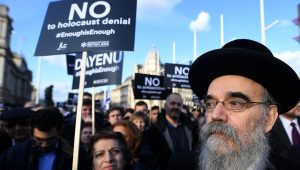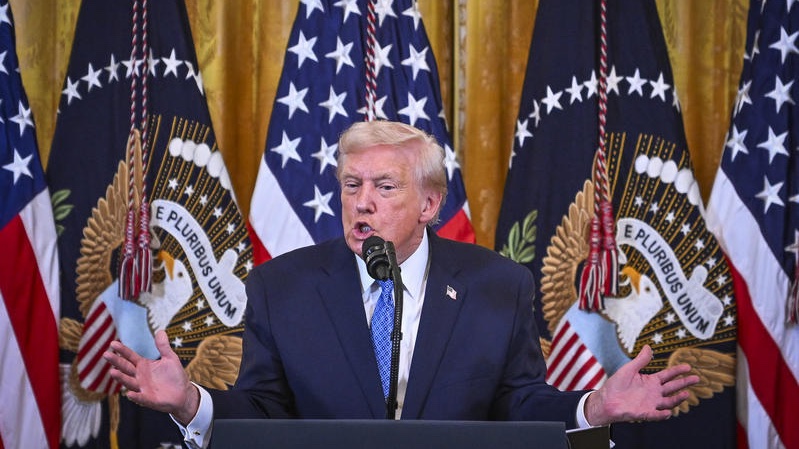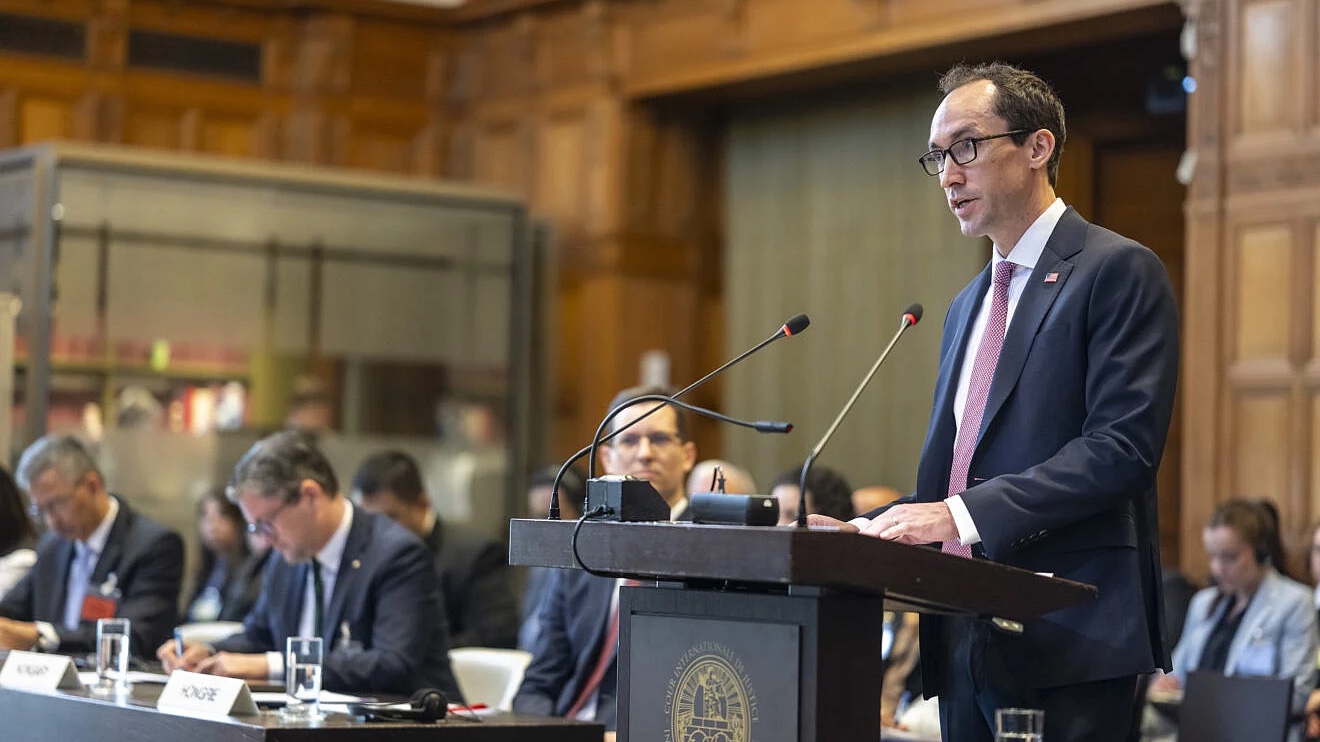(JNS) The dramatic Israeli strike on Tuesday targeting a meeting of Hamas’s senior political-terrorist leadership in Doha, Qatar, codenamed “Summit of Fire,” represents a paradigm shift in the nearly two-year-long war, moving to strike the terror group on the territory of one of its chief patrons and decision-makers.
The strike targeted a meeting attended by the terror group’s top echelon, including, according to the Saudi Al-Hadath channel, senior politburo members Mohammed Darwish (the current chairman of the politburo), Khalil al-Hayya, Zaher Jabarin, known as the former head of Hamas’s finances, Khaled Mashaal, former politburo chairman, as well as additional senior members Ghazi Hamad, Mousa Abu Marzouk and Hussam Badran.
The strategic importance of the operation was signaled by a photo released by the Shin Bet, showing Israeli Prime Minister Benjamin Netanyahu and Defense Minister Israel Katz inside the intelligence organization’s special operations command center from which the joint Shin Bet-IDF mission was managed.
The IDF and Shin Bet stated that the leaders targeted in Doha have been directing the war, are directly responsible for the Oct. 7, 2023, massacre, and that measures were taken to mitigate harm to civilians.
Oded Ailam, a former head of the Counterterrorism Division in the Mossad and currently a researcher at the Jerusalem Center for Security and Foreign Affairs (JCSFA), told JNS that the timing of the strike was driven by several factors, including recognition in Israel that the hostage negotiations had reached a dead end.
“The timing now is mainly from the recognition on the Israeli side that we are reaching a stalemate in the negotiations conducted by the existing external leadership, mainly Khalil al-Hayya, Zaher Jabarin, and Hussam Badran,” Ailam said.
“Paradoxically, they are presenting a rigid stance, which is not typical for external leadership. Usually, the internal leadership is more rigid and determined, but here they are blocking any possibility of compromise that arises from time to time. Eliminating them could motivate Hamas to accept the Trump deal, especially (Hamas terror chief in Gaza) Izzadin Al-Hadad, who is the most decisive factor in the Strip today,” he added.
Ailam argued that the strike also serves to demonstrate Israel’s unwavering resolve to achieve its war aims.
“Israel is creating a demonstration of intent; that we are serious about what we said—the total elimination of Hamas. And the proof is that we are not afraid to do something we have almost never done before and take responsibility for an aerial kinetic attack on a country that is not defined as an enemy state,” he stated, noting the last comparable strike was in Tunisia targeting PLO headquarters in 1985, though Tunisia was considered an enemy state at the time.
The current strike, he stressed, was a direct threat to the Hamas leadership in Gaza holding the hostages: “The idea is to project uncompromising determination. A message to the captors: if you harm the hostages, your fate will be similar to the fate of those who were eliminated abroad. In other words, you will have no place to hide.”
Crucially, Ailam assessed that an operation of this magnitude and sensitivity could not have been carried out without American coordination. “There is a very interesting aspect here that the attack in Doha is an attack very, very close to the American Al Udeid Air Base, which is the largest American military base in the Middle East. Qatar is an ally of the US,” he said.
He added, “I don’t see any possibility that such an attack was carried out without coordination with the Americans. The meaning from (US President Donald) Trump’s perspective is that he is not afraid. He is saying, ‘Okay, they will bark. They will make a lot of noise in the media, but in the end, Qatar’s capabilities are limited.’ Let’s not forget, it is a country of 250,000 citizens. They can’t exactly fire missiles at America or Israel. Their capability will probably be mainly in the media sphere.”
In a statement released on Tuesday, the Israeli Prime Minister’s Office stated, “Today’s action against the top terrorist chieftains of Hamas was a wholly independent Israeli operation. Israel initiated it, Israel conducted it, and Israel takes full responsibility.”
The strike puts a glaring spotlight on Qatar’s deeply destructive role.
According to a detailed backgrounder from the Washington DC-based Foundation for Defense of Democracies, Qatar has been a primary political and financial enabler of Hamas for decades, while simultaneously hosting 10,000 US troops and enjoying the status of a major non-NATO ally.
The former Emir of Qatar was the first world leader to visit Gaza after Hamas’s violent takeover in 2007, and since then, Doha has pumped an estimated $1.8 billion into the Hamas-run enclave. On Oct. 7, Qatar’s foreign ministry released a statement holding “Israel alone responsible” for Hamas’s massacre of some 1,200 Israelis.
The Gulf state, which is closely aligned with the global Muslim Brotherhood movement, has been hosting Hamas’s political office and its top leaders, including Ismail Haniyeh (eliminated at an IRGC facility in Tehran in July 2024) and Mashaal, both of whom were reportedly worth over $4 billion each and lived in five-star hotels.
At the same time, Qatar’s state-owned Al Jazeera network functions as a media mouthpiece and propaganda amplifier for Hamas, regularly lionizing its jihadist activities. The FDD noted that despite Qatar’s claims that its patronage could “moderate” Hamas, it has helped facilitate five separate wars against Israel (2008, 2012, 2014, 2021 and 2023).
Want more news from Israel?
Click Here to sign up for our FREE daily email updates















One has to wonder why the US doesn’t have its base in Israel, a true ally.